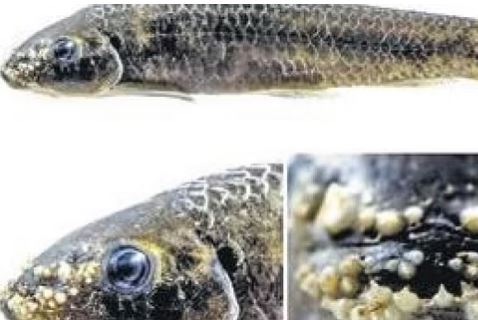Bhubaneswar: The researchers of the Central University of Odisha (CUO), Koraput, and the Zoological Survey of India (ZSI) have found a rare freshwater edible fish from the Kolab River at Ghataguda, Koraput.
Supriya Surachita, a Department of Science and Technology INSPIRE Fellow during her research on the topic “Diversity, distribution of fishes and threats in the freshwater bodies of Koraput in Eastern Ghats of Odisha” under the supervision of Prof. Sharat Kumar Palita, dean of School of Biodiversity and Conservation of Natural Resources of CUO, found the new cyprinid fish species from Kolab River, one of the tributaries of Godavari River.
The cyprinid fish species was named Garra laishrami.
The new species is named after Laishram Kosygin of the Zoological Survey of India to honour his remarkable contributions to understanding the taxonomy of Indian freshwater fishes.
The findings of the study have been published recently in the internationally reputed taxonomy journal “Ichthyological Exploration of Freshwaters” published from Germany.
These groups of fishes are distributed from Borneo, southern China and southern Asia through Middle East Asia, Arabian Peninsula and East Africa to West Africa.
However, the new species Garra laishrami is known to date only from the type locality Kolab River in the Eastern Ghats of Odisha, Godavari River drainage.
The new species is a member of the proboscis species group and distinguished from other members of this group distributed in the Indian subcontinent by the development of proboscis, degree of tuberculation on the proboscis and transverse lobe on snout and nostrils, position of transverse groove and morph metric data of the body.
The maximum length of the fish is from 76 mm to 95.5 mm. The species is edible and local people consume it. The fishes are usually found under rocks and among stones and boulders of torrential streams and rivers.
The finding confirms the biodiversity richness of the Koraput region and equally the biodiversity richness of the river Kolab (Saberi near Gupteswar).
UNI







































